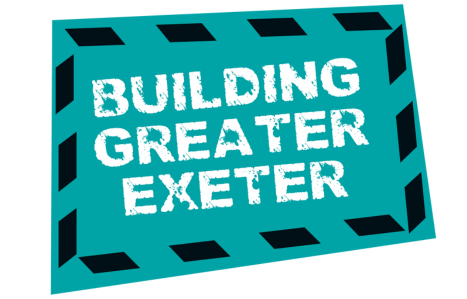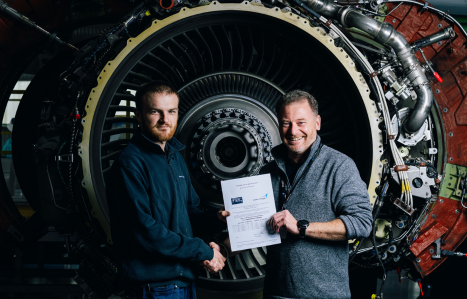Ten Tips to Ace your Interview you Haven’t Heard Before
We know that going for an interview can be tough. And we also know that it’s very easy to keep finding the same bits of basic advice online; shake hands, do your research and smile. So we asked out Digital Marketing Apprentice Ella Hymans to share her interview tips that you might not have heard…
Plan your route
While this may seem obvious to some people, most people will just type the postcode into the satnav and go. This will work some of the time, but all it takes is one road closure to catch you out and you could be 5 mins late for your interview. On top of this, you will most likely be feeling the nerves at this point and the last thing you need is to get lost and start to get panicked. Take a look on google maps in advance and plan your route, taking into account congestion if you are travelling at rush hour.
You can also take this further by planning your parking. If the company you are visiting does not have on-site parking you can use, research car parks nearby that you will be able to park in and then set the satnav for there, rather than for the company. This will save you again getting stressed driving round town aimlessly trying to find a space.
Finally, if you know you get really nervous at interviews, you can even look at the office doors. Go on the company’s website or google maps street view and try and find out if the door is push, pull or automatic. This way you can walk in stress and embarrassment free.
Do smart research
You have probably been told many times before that researching the company you apply for is very important. However, any old research is probably not going to help you very much. You need to be specific in your research, remembering things that are important to the company.
The best way to do this is to look into the company’s core beliefs – this may be through a ‘our aims’ page on their website or an ‘about us’ page. Once you have found their values, you can then look at how you can benefit that company.
For example, if the company’s value was ‘positivity’, you could look at problems that have arisen in your past, which you have faced with a positive attitude, or even turned around into a good thing. This can be anything from rescuing a project at a past job or improving a low grade at school. Either way it shows you have done you research and you have an attitude or belief that fits into their company ethos.
Compose yourself through the interview
To ensure you leave a good impression, ensure you compose yourself through the interview. I understand that you will be feeling nervous, everyone has nerves before an interview, some worse than others, but there are ways to calm yourself down.
Turning up early and presentable to the interview will give you time to calm yourself and give a good impression. If you are a bit of a clutz like me, you could also think about bringing a change of clothes – this can really come to the rescue in any nerve-related coffee incidents!
Communication and Respect
Throughout you interview, remember to keep two things in your head; communication and respect. If you are in your twenties, your interviewer could well be 20-30 years older than you. It is therefore wise to assess how you speak before answering any questions. Clearly communicate one point at a time and allow yourself time to understand the real meaning behind the interviewer’s questions before responding. People notice when you’ve really paid attention to the question being asked and thought carefully about your answer.
You can also show good communication by looking and speaking to all your interviewers. If you have more than one interview, throughout your answer make sure you look at each in turn to make them feel included. This will show you have good communication skills and can talk to a group which is essential for many jobs.
Furthermore, ensure you speak with respect for your interviewers. The people interviewing you have already achieved a level of competency in their career and will be, by definition, more senior to you if you get the job. Showing that you acknowledge the success of the people and the business, and that you would be excited to learn from them to contribute to the success of the business, will certainly be appreciated.
The Questions at the End
Asking questions at the end of an interview is important as it shows you are engaged with the interview and are eager for the job. However, do not ask, ‘What is the pay?’, although this is important to know later down the line, it does not sound good in a first interview. There are however some great questions to ask such as, ‘Could you describe an average day?’. This is great as it allows the employer to talk about the job, shows you are engaged and gives you more information as to whether this job is right for you.
You could also ask about the vibe of the team, how they work together, if they are more fun or more professional. For your last question, you could also say, ‘It’s been great to talk to you, before I leave do you have any reservations at this stage about my skills set or suitability to this job?’
This question is great as it allows the employers to bring up any reservations they might have and gives you the chance to challenge these. It is important to phrase this question in a gentle professional way, this ensures that it does not come across as arrogant.
Use the Interview to your advantage
Interviews can be a great opportunity to decide if that company is where you want to work, so make sure to take advantage of this. Notice things such as how long it takes you to get to the company, what is the workplace environment like and consider if you would be happy working there. This will allow you to decide if this job is going to work for you, physically, mentally and financially.
Bring documents with you
Again it may seem obvious but so many people will remember documents like their CV but forget simple ones such as a form of ID. Make sure before you go, you make a list of any document they might need, this could be CV, certificates, a portfolio, ID, etc, and tick it off as you put it in your bag the night before. This will ensure you have everything you need on the day and won’t look unprepared – or be stressed about forgetting something!
If you cancel, ring!
If for any reason you need to cancel your interview, do not email, ring! This is so important as it lets the interviewer know immediately and makes you appear more professional.
If you send an email, the interviewer may not get it until after the interviews are finished and therefore will be sat waiting for you, which will waste their time. However, if you call they will know immediately and will be able to do something else with their time. Employers undoubtedly appreciate this more and will be more likely to reschedule your interview for another time. Some employers won’t be able to do this, but if you ever apply for a job there in the future, calling in will put you in a much better position than if you just emailed or didn’t turn up.
Follow-up email
When you get home from the interview, ensure you send a follow-up email to the person organising the interviews, simply saying thank you for interviewing you and that you really look forward to hearing from them soon. This will take you very little time but again shows an eagerness for the job – as well as a politeness and good attitude that will always work in your favour.
Enjoy yourself
An interview is a great chance to meet new, interesting people. Try to open up the conversation into the topics which interest them, people always enjoy talking about what is passionate to them and will think more highly of you if you give them the opportunity to do that.
If in every interview you aim to have had an interesting and stimulating conversation, you will actually gain something from these interviews and enjoy them more. If you look at an interview this way you will be able to turn those nerves into excitement and enthusiasm, making you a much more intriguing candidate.
These 10 tips will certainly help you through the interview process but there is so much advice out there. I have tried to highlight some things you may not have heard before and may not have thought about. However, I sure you all have some great ideas of how to master the interview.



